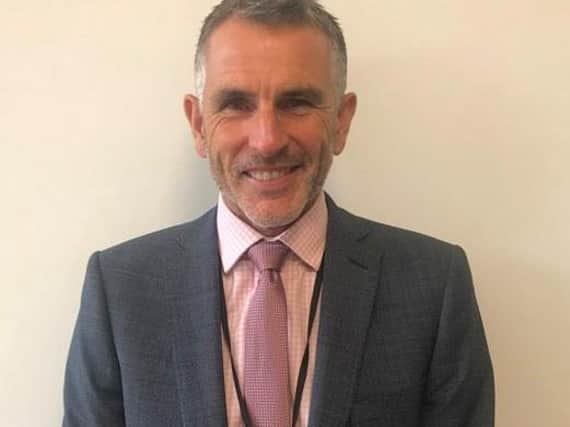Northamptonshire residents may not notice the difference after £55m unitary reorganisation


The officer overseeing the transformation of local government in Northamptonshire says his plan is that residents will not notice the change.
The long running saga of unitary reorganisation in Northamptonshire is 10 months away, with local politicians now deciding to go for a scaled down ‘safe and legal option’ to get the new north and west unitaries over the line amid the Covid crisis.
Advertisement
Hide AdAdvertisement
Hide AdSince the lockdown the cost of the reorganisation has jumped by £11m to £55m and in a promotional video from Future Northants – the name given to the reorganisation effort – Paul Helsby, director of transformation, has spelled out his ambition for the two new authorities.
He said: “My vision for day one for residents is they won’t really notice anything different. They will be able to access the same services as they did the day before and it all runs smoothly.
“Of course to make that happen there is a lot of work to be done behind the scenes.”
In the video Mr Helsby says some transformation of services will happen before the launch day, but much will happen afterwards.
Advertisement
Hide AdAdvertisement
Hide AdLeader of Northamptonshire County Council’s scrutiny committee Cllr Mick Scrimshaw said: “I would say the opposite. Success will be if residents do notice the difference. If we have more of the same that will not be good.”
A change of the local government system in Northants was ordered by government in 2018 after the financial mismanagement of Northamptonshire County Council (NCC).
The reality of unitary governance in Northamptonshire in 2021 may not be too far from what residents have been receiving for many years.
The old guard of councillors is still in place due to cancelled local elections in May and the government has appointed Kettering leader Russell Roberts to lead the authority.
Advertisement
Hide AdAdvertisement
Hide AdCllr Roberts has also written to existing senior officers working at the eight councils to also apply for the top roles at the two new authorities.
The websites of the two new authorities will for two years link back to the old content and many services and contracts will remain unchanged.
There will also be some shared services between the west and north unitaries with children’s services being taken out of their control completely and provided by an independent trust. Adult social care is the area that will come under the most transformation, especially in light of it being thrown into the spotlight during the Covid crisis.
The decisions for how the north unitary will run will be made by a shadow executive of 10 councillors from across the four existing councils in North Northants plus two councillors from NCC.
Advertisement
Hide AdAdvertisement
Hide AdThe first public meeting of the executive last night (June 11) lasted for just 23 minutes and the executive approved the 11 task groups who will make recommendations about important matters such as council tax harmonisation and the vision for the new authority.
However Liberal Democrat Chris Stanbra requested to speak at the meeting to highlight the amount of discussion and policy creation that would take place in secret by officers and council leaders. A Joint Implementation Executive (JIE) has been set up which will include all leaders and officers from the eight Northants councils that will be replaced by the two unitaries, however these will be held in private and minutes will not be made public. There will also be a Programme Implementation Board made up of senior council officers.
Cllr Stanbra said: “As a member of the JIE, each participant will abide by the confidentiality and disclosure provisions in relation to information sharing and data security protocols. In short, the PIB, a body about which we know very little, makes recommendations to the JIE, which meets in secret and then makes recommendations to the Shadow Executive which meets in public to discuss recommendations from a body on which all members of the Shadow Executive sit and at meetings of which they have previously discussed and reached consensus on the items they are discussing in public.
“Can you see how that might look? Can I suggest that the minutes of both the PIB and the JIE are published in order to provide a little transparency and openness.”